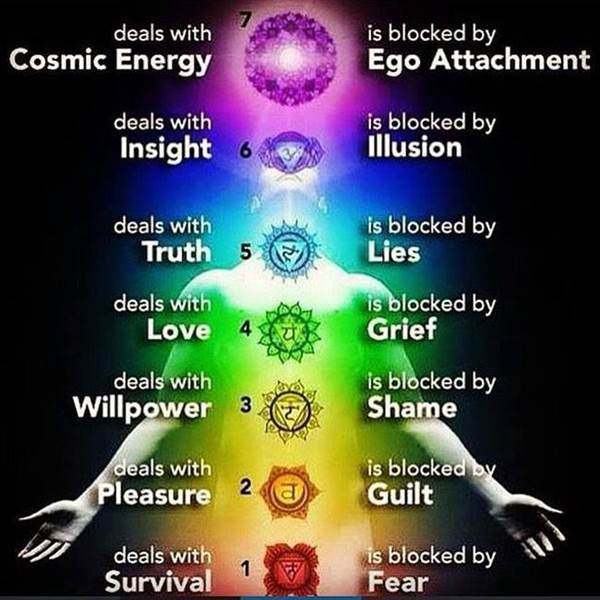THE SHADOW
Emotions & the Personal Unconscious
In Romans 7:19-20, St. Paul says, “For it is not the good that I wish to do, that I do, but it is the evil that I do not wish to do, that I do. Now if I do that which I do not wish, then it is not I who do it, but the sin that dominates me.” Many Christians are familiar with this saying, but very few realize that St. Paul was describing what Analytical Psychology refers to as the shadow. The recognition of a personal shadow was developed in the writings of Carl Jung in the early twentieth century.
Jung first used the term “the shadow side of the psyche” to mean the repressed unconscious and the dark emotional desires of the personality. He refers to the personal shadow as the other in us, an unconscious personality of the same sex which harbors and hides all our unpleasant qualities and undeveloped characteristics as well as the negative aspects of the personality. Jung says, “Everyone carries a shadow, and the less it is embodied in the individual’s conscious life, the blacker and denser it is. At all counts, it forms an unconscious snag, thwarting our most well-meant intentions.”
In more modern terminology, the shadow refers to that part of the unconscious psyche which is closest to the conscious self, but is not completely accepted by it. These are common human traits and emotions the ego-personality has rejected as being part of the conscious self; these aspects of personality are repressed and become unconscious, but are frequently encountered as emotional eruptions. Consequently, that which we reject within ourselves we find impossible to live with in others so we reject them also – thus the aphorism: judge not, lest ye be judged.
The shadow-self consists of the lower unconscious and the egotistical personas. This the home of all ego reflections which contain the mechanical reactionary behaviors of the past, inherited ancestral behaviors, and the various emotional personas used by the ego. The shadow collects the debris of unresolved issues, wrongdoing, non-doing, and fantasy imaginings; this debris produces automated suffering. The dissatisfaction and overburdening of the lower psychic creates pain, suffering and uncertainty in life. Faith in God sets fire to the accumulated debris in the shadow; such fire produces purification.
The mastery of sin indented in the shadow-self brings detachment. On mastering detachment, another aspect is born; one moves out of duality and away from sin. Conscience then is free to act as a chemical catalyst to devour sins. The obscurity of the shadow, its nature, and even its very existence, is difficult for most people to acknowledge. Thus the shadow is denied expression in everyday life making it a splintered fragment of the personality which is isolated from exposure and discovery. However, it does not mean this repressed fragment of personality lies dormant in the unconscious.
Quite the contrary, this shadow self represents energetically charged patterns of feelings, urges, and emotional behaviors which still operate in the life of the individual, but “from the shadows,” making it all the more dangerous and threatening to the ego-personality. As R. D. Laing writes, “The range of what we think and do is limited by what we fail to notice. And because we fail to notice that we fail to notice there is little we can do to change until we notice how failing to notice shapes our thoughts and deeds.”
The reason for this conundrum in our conscious being lies within the developmental phases of the ego. Throughout the early stages of life, we constantly hear our family, friends, teachers and ministers express what is good, proper and moral behavior as well as what is shameful, mean-spirited and sinful behavior. When we reach the adolescent stage of life, the ego-persona struggles to formulate a stable and acceptable self-image, but it is thwarted in its efforts by the external collective consciousness of people and society.
The basis for ego-identity is derived from perceptions of right and wrong which becomes the foundation for self-acceptance or conscience. These individualistic moral perceptions are projected onto the external collective so the individual can determine how well he or she fits in. One’s acceptance of the ego-persona is initially dependent upon external acceptance from the collective; and those aspects of the ego-persona which are at variance with the accepted persona values are not incorporated into the ego’s “self-image.” Therefore, these aspects or fragments of the personality are repressed, yet they still give power to the “alter-ego” which continues to function and affect our life in varying degrees.
In order for the ego-persona to maintain its idealized self-image, it must continue to repress those qualities which are contrary to the collective persona ideals and cultural values. These fragments are fundamental personality structures, but since they are repressed, they will remain primitive, undeveloped, immature and therefore, negative or in some cases, evil. Repression does not eliminate these fragmented parts and instinctual drives or keep them from functioning; it just attempts to hide them from the conscious experience. Since they are hidden, they are unsupervised and continue their existence unchecked often appearing as disruptive or disturbing circumstances in life as well as dark emotional aspects or instinctual drives of the personality.

The negative characteristics above can cause us to get stuck in the lower psychic.
Not ALL of these apply to one’s personal unconscious. To advance into the
higher psychic, identify and transform those that resonate with you.
The identity of our conscious self is something we experience as being within our center of awareness, but since the shadow functions outside of consciousness, that is, in the unconscious, it often makes its presence known by projecting its qualities onto other people, thus swaying us to perceive these people in a negative light. In addition to this level of projection, there can also be a collective projection of the shadow such as when religions project onto Satan the manifestation of all evil, thus relieving the individual for his or her inappropriate behavior.
Shadow projections also have the power to manipulate life experiences, individually, through difficult and challenging circumstances; and collectively, in the extreme, shadow projections can start wars. Consequently, the recognition of the shadow comes as a shock when people realize the negative ascribed to another person or nation in fact originates from our own shadows.
Today in the political setting, we continuously see hatred, judgment, and hypocrisy being projected by politicians, activists and the media toward the opposing party; and the accusers never realize that they are accurately describing themselves as they hurl their vitriolic accusations. In our nation today, there is a schism between those who live by longstanding socially accepted values and behaviors and those who seek radical change of these norms.
In the streets and on the campuses we see various groups projecting their shadows as blaming or scapegoating; many groups claim to be victims of: racism, sexism, discrimination, conservatism and the truth. We also see angry feminist verbally attacking men (justifiably, in some cases), but in psychological terms, they are also rejecting their own animus, their unconscious masculine principle.
On a larger collective scale, the shadow can be “the enemy” as when radical Islam accuses America of being the “great Satan” and as politically-charged Americans accuse Russia of being the “evil empire.” Historically, blaming or scapegoating has proven to be a predominant characteristic of shadow-driven people because they consider themselves to be above reproach and they are willing to attack others in order to preserve their “perfect” self-image. Carl Jung says, “Where love rules, there is no will to power; and where power predominates, there love is lacking. The one is the shadow of the other.”
Of course, everyone has a different response to the shadow with some people feeling repression is less painful than facing the shadow; and others are beyond help because they have willingly succumbed to the darkness and hatred of their shadow and refuse to acknowledge their evil persona. While some people will continue to deny the existence of the shadow, others will attempt to will it away and a few courageous souls will take responsibility for it and begin the shadow work which will take them to higher levels of conscious awareness and to greater depths of peace within.

Those who refuse to face the shadow or try to will it away with the familiar saying, “Get thee behind me, Satan” are simply relegating their responsibilities back into the unconscious where this dark force continues to operate by projecting its delusions into our life experience. Thus, we are unable to experience our true Self or other people, or to see reality as it truly is because we perceive these through the “distorted lens” of our shadow or as St. Paul says, “We see through the glass darkly.”
Harboring and denying the shadow keeps us from our true Self, our Wholy Self. Therefore, it takes a very special person to accept responsibility for his or her shadow, and it takes courage and determination to actually begin working on the shadow; but this is the only avenue to higher consciousness.
Surprisingly, the shadow is the door to the higher Self in that it enables us to recognize the part of our personality which remains unconscious, but filled with potential and power. In reality, the shadow is the only access we have to the unconscious and when we are willing to embrace those parts of ourselves which we have rejected or denied, we finally can realize true spiritual progress upon the path; we can bring light and awareness to the personal unconscious.
Spiritual growth is not possible until the shadow has been confronted which means honestly looking into our personal “darkness” and seeing it for what it is and being willing to engage and transform it. The first step is realizing the “chattering mind” is the voice of the shadow and it must be controlled. The only way to do this is through focused breathing (See: Just Breathe). All evil is potential vitality in search of transformation. The difficult part of dealing with the shadow is being unable to perceive or confront it directly, as the alter-ego always “hides in the shadows.”
Take heart and remember what it says in Psalm 23, “Yea though I walk through the valley of the shadow of death, I shall fear no evil for thou art with me.” Disciples of Christ must learn how to stand up to darkness and evil by exposing it and conquering it with focused Light which brings it into conscious awareness where it evaporates. “Darkness, call me brother, that I may not fear that which I seek!” (Anonymous)
The meditations on this site are specifically designed for making our unconscious conscious which liberates and integrates the hidden potential of the shadow, thus allowing us to make progress toward realizing our Wholy Self.
“If you bring forth what is within you, what you
bring forth will save you. If you do not bring
forth what is within you, what you do not
bring forth will destroy you.”
Jesus Christ
Goodness will reign in the world not when it triumphs over evil,
but when our love of goodness ceases to express
itself in terms of the triumph over evil.
A.B. Schmookler
SpiritualChristian.com

*
* *

